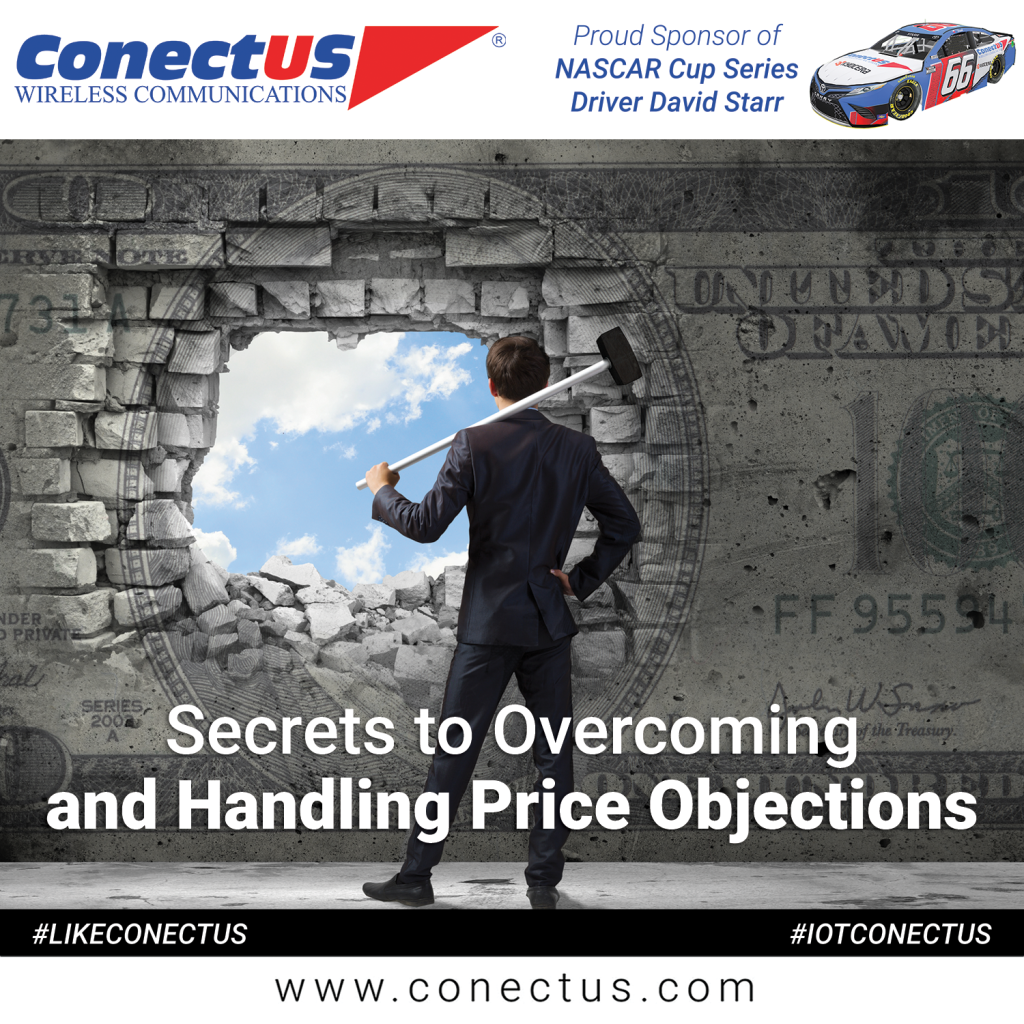The reality is prospects don’t typically just say “no“, but instead they hit you with an objection. An objection will almost always be a roadblock for the untrained salesman. Some of the most common objections are:
• Send me some information and I’ll get back to you
• Let me check with my partner
• Let me think about it
• I’m not interested at this time
• Your price is too high
Even if the prospect flat out tells you “no” it doesn’t mean that they wouldn’t want to buy your product and it’s your job to find out what their real object is.
Objections are actually extremely helpful because they give you the opportunity to better understand what it is that is holding the prospect back from buying from you. You can’t overcome an objection if you don’t know what it is. Of course sometimes the objection you hear may not be the real objection so you’ll also be tasked with uncovering it. You should always handle objections using these proven, extremely effective four steps:
1. Determine the prospect “real” objection(s)
2. Express that the prospects concern is understandable
3. Answer the objection(s) and clearly define your solution
4. Ask for the sale
Determining the Real Objection:
Determining the real objection may not always be easy but you cannot close the sale until you do. The best formula for uncovering the real problem is simply by asking questions that are relevant to the objection and then paraphrasing the prospects responses. The reason you should paraphrase is it forces the prospect to acknowledge and agree with their stated concern and it may also uncover the real objection. For example:
Prospect Says: “Your price is too high”
salesperson: ” So if I understand you correctly you’re saying that you are interested in our product and if I were able to bring the price down you would do business with us. Is that correct”?
A salesperson can’t be afraid to push prospects into telling them the real objection because they can’t overcome problems that they don’t understand. In the above example if cost is the real problem they would know it but if it’s something else you’ll surely find out.
Once the salesperson has determined the real objection they can move forward in the sales process. It a good idea to list the top five objections that typically heard and develop bullet proof responses to keep from getting stumped in the middle of a presentation. Once these are written down it’s best to read them over and over until they are memorized word for word which will help to naturally answer objections as they arise.
Below are some of the most common objections along with a powerful response that when used will be effective most of the time:
Objection: “Send me the information and I’ll get back to you”
Rebuttal: “Tell me, what is the main thing you would need to see in my information before you would do business with us”?
Objection: “Let me talk with my partner”
Rebuttal: “If the decision were entirely up to you, would you buy the product or would you have other questions”?
Objection: “Let me think about it”
Rebuttal: “tell me, what’s the first thing that comes to mind that’s keeping you from moving forward today?”
Objection: “Your price is too high”
Rebuttal: “Our price is based on what’s necessary to make sure our product delivers the best possible result to you, and that’s what you really want is the best result, not the cheapest price, isn’t that true?
Express that the prospects concern is understandable:
Many salesperson make the mistake of dismissing the prospects concern and going right into their rebuttal. STOP! Don’t be that person, no one likes or respects them. Take the time to acknowledge that your prospect has a legitimate concern and let them know that while you respect their concern you also have a solution. This is incredibly easy to do but it’s so often ignored. Simply start your reply to the objection by saying something like:
“I completely understand your concern and I would have responded the same way…”
“I agree with you and so do most of my other clients…”
“It makes perfect sense that you would say that…”
Answer the Objection(s)
This is where the knowledge of a salesman’s product/service will come into play. Assuming that they are 100% clear on their prospects real objection they should be fully equipped to talk about the benefits that their product offers and how they will provide a solution to the prospects needs. This may involve explaining how the product will do one or more of the following:
• Save time
• Save money
• Improve profits
• Make a process easier or faster
• Reduce stress
Ask for the sale
If the salesperson handled the process correctly you should be in a much better position for a one call close. Ask for the sale.
The Best Defense is a Strong Offense
There is no better way of handling objections then avoiding them. Remember, objections usually occur when the prospect fails to see benefit. Be creative and help your client visualize the value of your product. Try using references of existing happy clients. People tend to go with the crowd.
• If everyone’s wearing it then you’re wearing it
• If everyone saw the movie then you’re going to see it
• If everyone has a Facebook then you’ll get one
Tell the customer a brief success story about a local client (or two) that has already seen the benefits of your product. For example say:
“working with your neighbor, John Smith we saved him $149 a month, and Mary, across the street from you saved even more on our program”.
It’s important to understand that if the client thinks no one else is buying the product then why would they want it, and that perception will nearly always create objections that could have otherwise been avoided.
Are you interested in selling Verizon Wireless services? Call us at (855) SELL-VZW or fill out the form below. We look forward to talking to you soon!
[ccf_form id=”948″]


